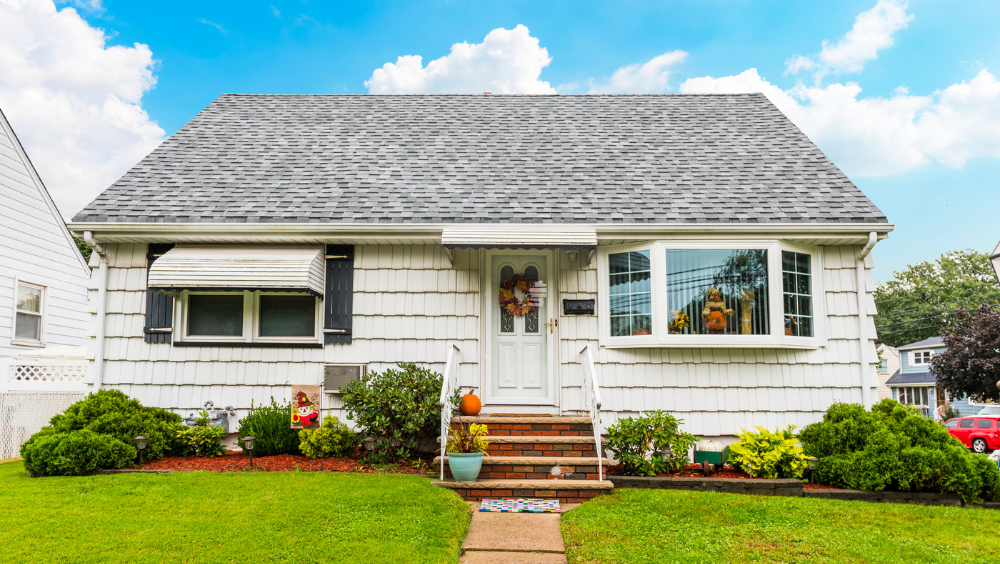
Looking to sell a house “as is” in New Jersey? Whether you’ve got a fixer-upper or recently inherited a relative’s home, sometimes the goal is to skip repairs, get a fair offer, and move on. However, selling a house “as is” usually means accepting a lower offer, and it doesn’t always prevent buyers from trying to negotiate savings. Let’s look at how to sell a house in New Jersey, your options for getting an offer, and what to expect from the process. According to Randi Bennett, a top-selling agent in the Boonton, New Jersey area, who sells homes 25% faster than the average local agent, the number one reason someone would be looking to sell a home quickly is an unexpected death in the family. “As is” is a type of home sale where it’s understood that no improvements will be made to the property. When selling a house “as is,” the seller chooses not to entertain buyer requests to complete repairs or provide a credit for fixes. An as-is sale may also indicate that the functionality and longevity of certain home components, such as a stove on its last legs or an older roof, is not guaranteed. When selling a house “as is,” the property’s general condition should already be accounted for in the home’s purchase price to the best of the seller’s knowledge. Homes sold “as is” often need work or are cosmetically outdated. It’s not a label you’ll likely put on a listing in pristine, move-in-ready condition. “As is” sales often attract investors searching for their next flip or buyers seeking a bargain, perhaps on a home in a great location with lots of potential. According to Bennett, no single home type is likely to be sold “as is” over another type, and “all types of homes” are typically sold “as is”. Selling a house “as is” in New Jersey doesn’t mean sweeping known problems about the house under the rug. A good time to fill out the Disclosure of Information on Lead-Based Paint is before listing your home or requesting an offer so that you know it’s taken care of. According to the document, The seller of any interest in residential real property is required to provide the buyer with any information on lead-based paint hazards from risk assessments or inspections in the seller’s possession and notify the buyer of any known lead-based paint hazards. A risk assessment or inspection for possible lead-based paint hazards is recommended before purchase The form will walk you through documenting what you know about the presence of lead-based paint in the housing. You’ll also be prompted to fill out information about: No matter what method you choose to sell your home, you must make these disclosures to the best of your ability. However, New Jersey does allow certain exceptions for sellers whose property is not pre-1978 original construction. The main options to sell a house ‘as is’ include: A great real estate agent will assist in listing and selling a home “as is.” An agent gives simple presentation tips to improve marketing, helps to set an appropriate price that reflects the home’s condition, and works to find a buyer willing and eager to buy your home in its current state. Bennett says that she notifies sellers of some repairs that a seller cannot put off, regardless of the home being sold as is. “There are still certain things, if they come up, they will probably have to address. If there’s mold, it’s hard to do as an “as is” sale. It sometimes goes through, but sometimes other issues need to be addressed,” she says. Someone needing to sell their home “as is” can also work directly with a property investor or house-buying company rather than list, where getting an offer from a limited buyer pool may be difficult. We Buy Houses operations buy “as is” at a discounted rate and generally seek out homes needing significant repairs. These companies can help sellers cash out quickly, and many will cover a seller’s closing costs.Fast facts about selling a house ‘as is’ in New Jersey
Median sales price in New Jersey
$530,000
Average days on market (DOM) for New Jersey
32
Disclosures
New Jersey law requires sellers to disclose material facts about the property through the Disclosure of Information on Lead-Based Paint.
MLS has a field to mark a listing “as is”?
Yes
Is a real estate attorney required?
Real estate attorneys are not considered essential for closing in New Jersey.
Real estate transfer taxes?
New Jersey has several realty transfer fees:
What is ‘as is’ condition in real estate?
Which types of homes are sold ‘as is’?
What problems do you have to disclose in New Jersey?
Review your options to sell ‘as is’ in New Jersey
List ‘as is’ with the help of a real estate agent
Sell directly to a cash buyer



